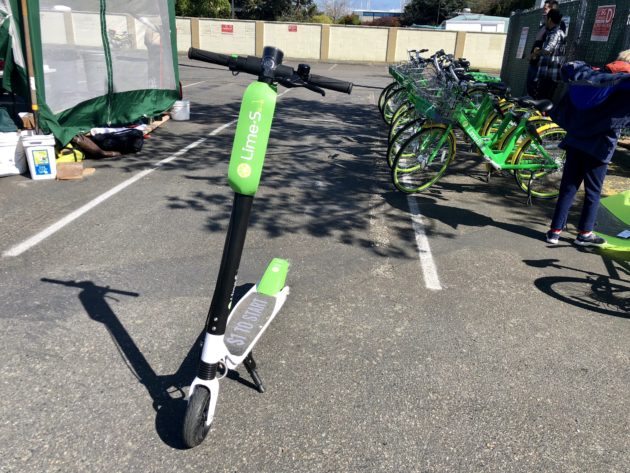
Seattle’s plan for a free-floating scooter-share pilot program is coming into focus with a newly released environmental impact statement and other filings that reveal key details of the proposal.
The motorized scooters will be allowed in bicycle lanes and multi-use trails but will not be allowed to ride on sidewalks, according to a Seattle Department of Transportation proposal. This could test the city’s enforcement capabilities, as other municipalities have struggled to enforce similar restrictions.
SDOT will issue permits for a maximum of 20,000 scooters and bikes, according to the documents. Scooters won’t be allowed to go faster than 15 miles per hour, which is consistent with other rules for “micro-mobility devices,” as they’re known. And scooter-share companies will have to pay a fee, which will fund the administration of the pilot.
In another potential challenge for enforcement, the city will put restrictions on where scooters can be parked, and require scooter share vendors “to prioritize obstruction hazards in responding to reports that scooters are improperly parked or need maintenance.” In addition, the vendors “must have geofencing technology to virtually mark areas where scooters are restricted.”
The deadline for public comment on the proposal is Dec. 23. Seattle is in the midst of a due diligence process launched over the summer to prepare for the scooter pilot. City officials expect to finalize permits that scooter companies can apply or by the end of the year and roll scooters out in the spring of 2020.
Seattle was one of the first cities in the country to embrace dockless bicycle share, launching a pilot in 2017 and formalizing the program in 2018. The city is taking its time before allowing scooters, even as surrounding communities embrace them. Neighboring cities Redmond, Tacoma, and Bothell launched scooter pilots in recent months.
